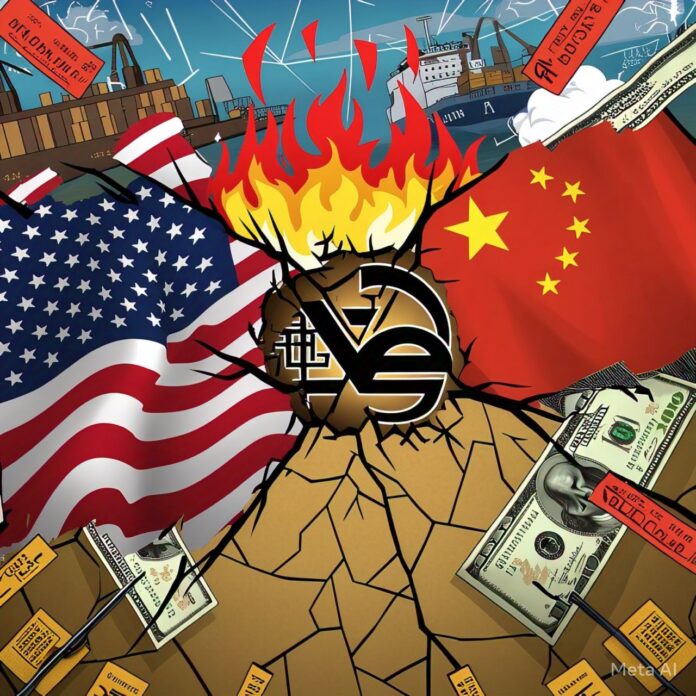The global economy is struggling again in 2025 as the U.S. and China fight harder in their trade war. Tariffs are the highest they’ve ever been, and both countries are refusing to back down. This is affecting everyone — shoppers, companies, and governments around the world.
🔥 What Sparked the Latest Trade War Escalation?
On April 2, 2025, former President Donald Trump launched a major tariff policy known as “Liberation Day.” This sweeping move imposed:
- A baseline 10% tariff on most foreign imports
- A 34% additional tariff on China, bringing its total to 54%
- Later increases raised this to a staggering 145% on Chinese goods
In retaliation, China imposed 125% tariffs on American exports and tightened restrictions on rare earth minerals, crucial to U.S. tech and defense industries.
💸 Impact on Businesses & Consumers
Major U.S. companies like Shein, Ford, Walmart, and Target have already issued warnings about rising prices. The increased costs are being passed directly to consumers as global supply chains face strain.
Even Federal Reserve Chair Jerome Powell admitted the tariff hikes exceeded expectations, hinting at possible long-term inflation and economic slowdown.
🌍 Global Economic Shockwaves
The trade war isn’t just a U.S.–China issue anymore—it’s shaking the global economy.
- Supply chains are being rerouted
- Global stock markets are volatile
- Many developing nations are caught in the middle
China is actively encouraging other countries to resist what it calls “unilateral bullying” by the U.S. A UN Security Council meeting is even scheduled for April 23 to address U.S. economic sanctions and their global implications.
🛑 Legal Challenges & Political Fallout
California Governor Gavin Newsom is suing the federal government over the tariffs, claiming they violate constitutional trade principles and severely hurt local businesses.
This legal action could set the stage for a states vs. federal government showdown over international trade policies.
🕊️ Is There Hope for Peace?
Despite the high tensions, there are signs of possible de-escalation:
- Trump claims China has reached out multiple times to negotiate
- Talks could resume within the next 3–4 weeks
- The TikTok ban decision has been postponed until after trade negotiations
China’s Foreign Minister Wang Yi reiterated a desire for fairness and rules-based trade, leaving the door open for dialogue.
Final Thoughts
The current U.S.–China trade conflict is more than just a diplomatic spat—it’s a full-scale economic battle with far-reaching consequences. Whether peace or escalation lies ahead, one thing is clear: the world is watching closely.
